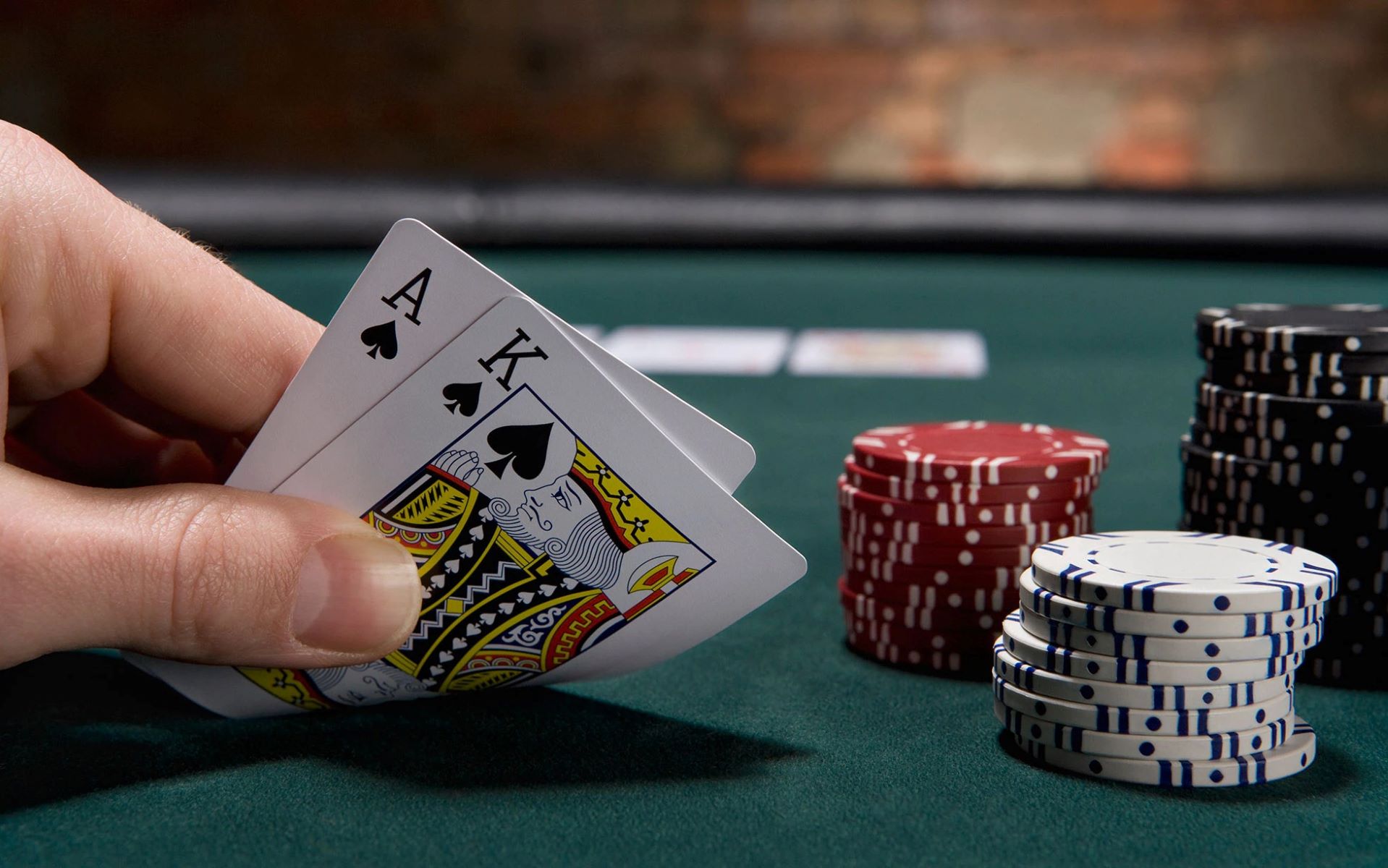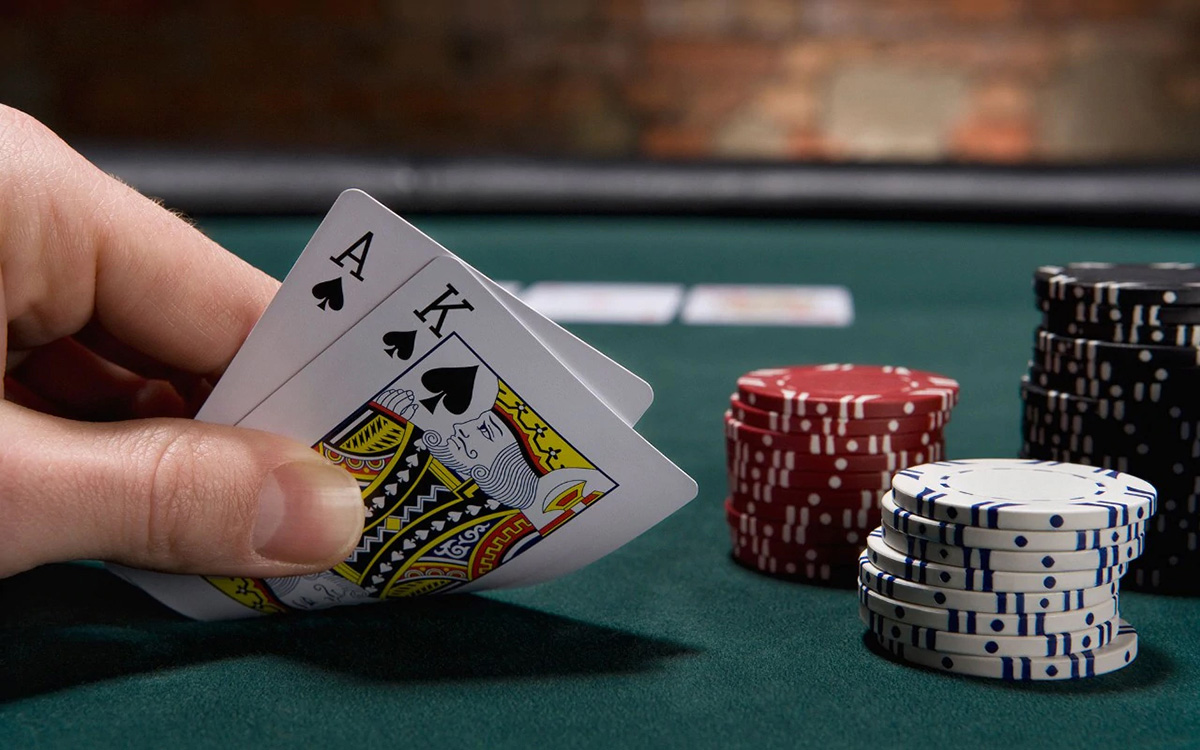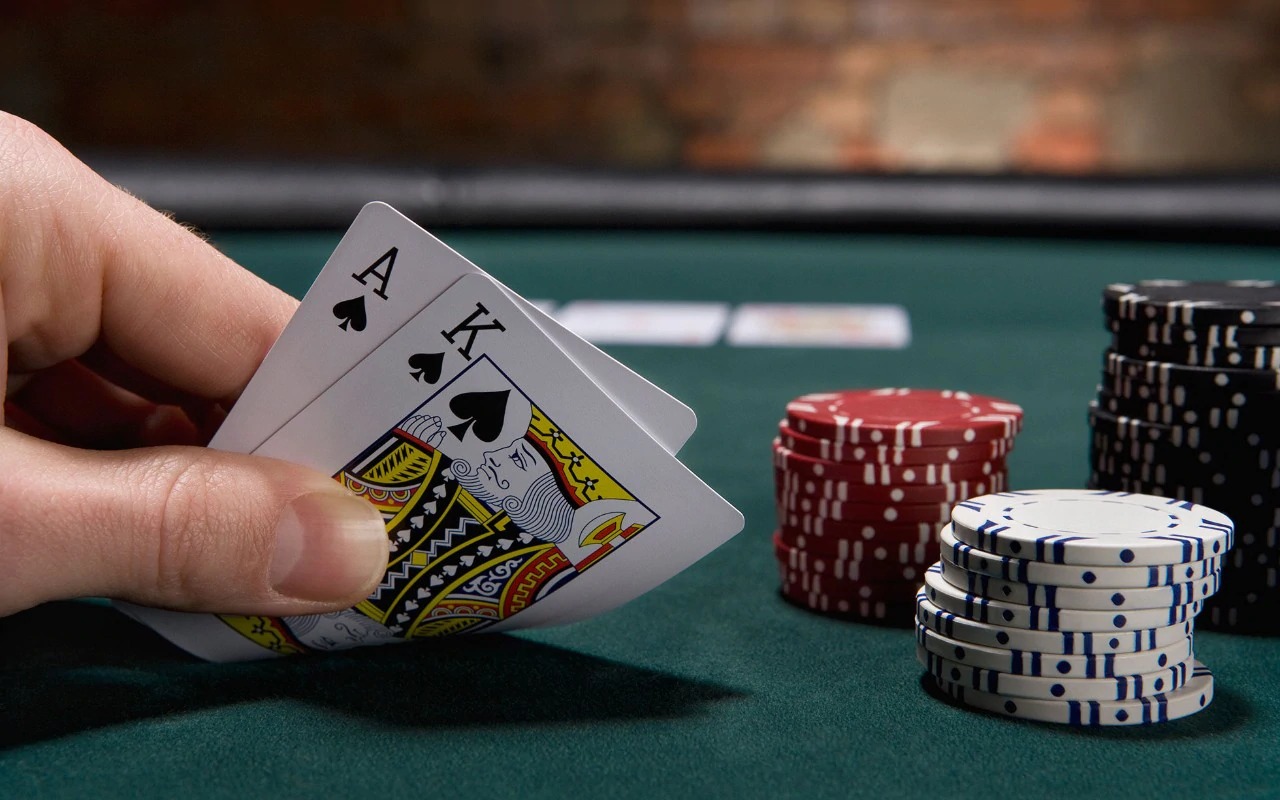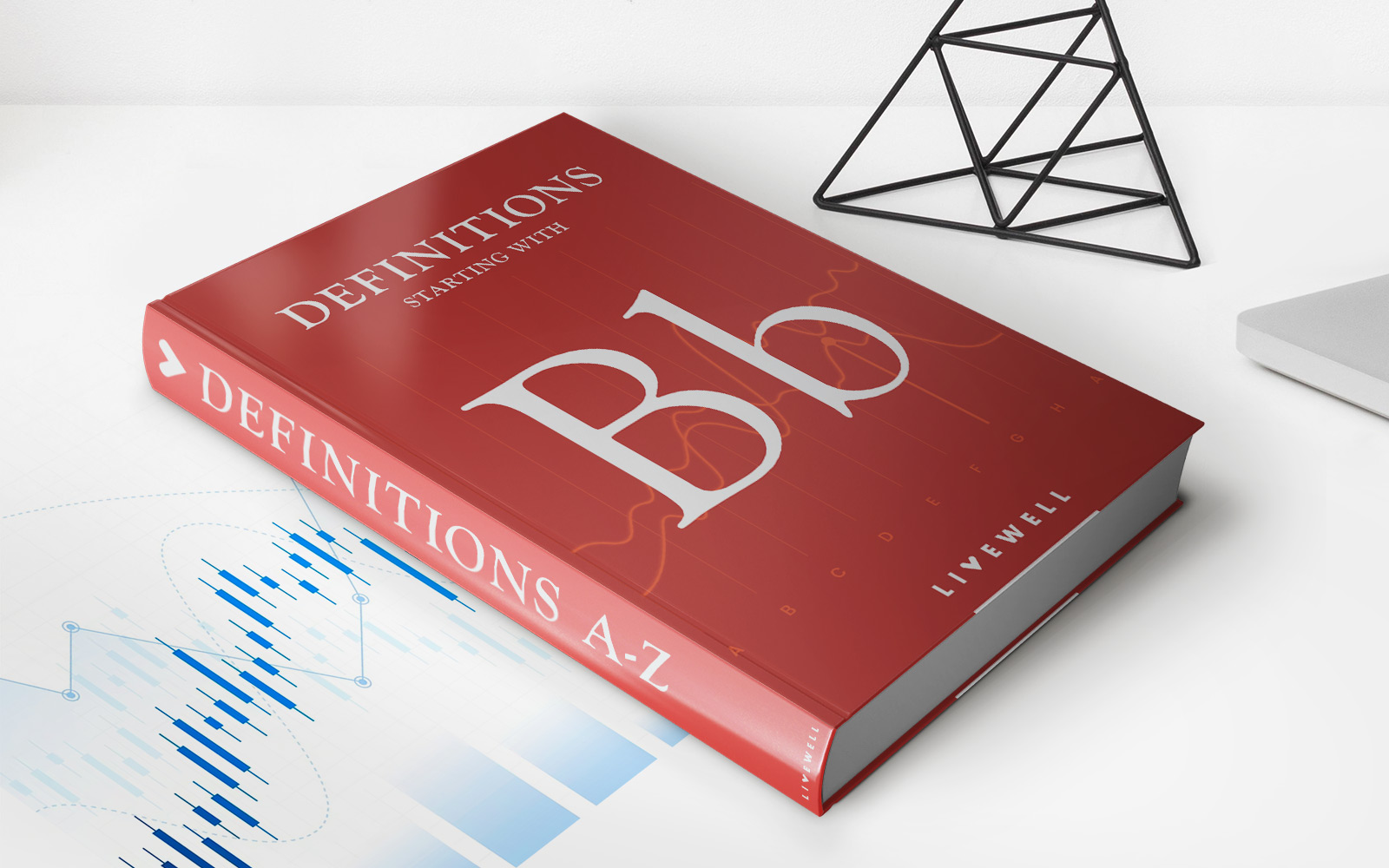

Finance
How Does Insurance In Blackjack Work
Modified: February 21, 2024
Learn how insurance works in blackjack and how it can affect your finances. Understand the risks and benefits of this popular betting option.
(Many of the links in this article redirect to a specific reviewed product. Your purchase of these products through affiliate links helps to generate commission for LiveWell, at no extra cost. Learn more)
Table of Contents
Introduction
When it comes to playing blackjack, one of the most debated topics is insurance. Many players are unsure whether to take insurance or not, and if they do, how it affects their chances of winning. Insurance in blackjack can be a valuable tool if used correctly, but it can also lead to unnecessary losses if misunderstood.
In this article, we will dive into the intricacies of insurance in blackjack, exploring how it works, its pros and cons, common misconceptions, and strategies for making the most of this option. By gaining a deeper understanding of insurance, you can make more informed decisions at the blackjack table and potentially improve your overall gaming experience.
Before we delve into the finer details, let’s briefly recap the objective of the game. Blackjack is a card game where players aim to have a hand value closer to 21 than the dealer’s hand, without exceeding that number. The dealer deals two cards to each player and to themselves. While the players’ cards are face-up, one of the dealer’s cards remains face-down, unseen by the players.
Now, let’s explore the concept of insurance in blackjack and how it can impact your gameplay.
Understanding Insurance in Blackjack
Insurance is a side bet option available to players when the dealer’s face-up card is an Ace. It is a separate bet that allows players to protect themselves against the possibility of the dealer having a blackjack (a two-card hand with a total value of 21).
When the dealer’s face-up card is an Ace, they will ask players if they want to take insurance before checking their hole card (the face-down card). This is an opportunity for players to bet on whether the dealer has a blackjack or not. The insurance bet is typically half the amount of the original wager.
If a player decides to take insurance and the dealer does have blackjack, the player wins the insurance bet, which pays out at odds of 2:1. This means that if you placed a $10 insurance bet, you would receive $20 in winnings. However, if the dealer does not have blackjack, the insurance bet is lost, and the game continues as usual.
It’s important to note that taking insurance does not affect the outcome of the original bet. If the player and the dealer both have blackjack, it results in a push, and the player’s original bet is returned.
Now that we understand the basic concept of insurance in blackjack, let’s examine how this option affects the odds of winning and the potential advantages and disadvantages of taking insurance.
How Insurance Works
Now that we know insurance is a side bet offered when the dealer’s face-up card is an Ace, let’s take a closer look at how insurance works in blackjack and how it affects the overall gameplay.
When the dealer asks if you want insurance, you have two choices: you can either take insurance or decline it. If you choose to take insurance, you place an additional bet equal to half the amount of your original wager. This insurance bet is completely independent of your main bet on the outcome of the hand.
If the dealer does have a blackjack, your insurance bet pays out at odds of 2:1. This means that you effectively break even on the hand, as you lose your main bet but win double the amount of your insurance bet. For example, if you have a $100 bet and take insurance for $50, you would lose your $100 bet but win $100 from the insurance bet, resulting in no net loss or gain.
On the other hand, if the dealer does not have a blackjack, you lose your insurance bet, and the game continues as usual. In this case, you are at a disadvantage as you not only lose your insurance bet but also potentially lose the hand if your hand value is lower than the dealer’s.
It’s important to note that the option to take insurance is independent of the player’s hand. Whether you have a strong hand or a weak hand, the decision to take insurance should be based solely on the dealer’s face-up card and the probability of them having a blackjack.
Now that we have a grasp on how insurance works, let’s weigh the pros and cons of taking insurance in blackjack.
Pros and Cons of Taking Insurance
When it comes to taking insurance in blackjack, it’s important to weigh the pros and cons before making a decision. While insurance may seem like a tempting option, it is essential to consider the potential risks and rewards. Let’s explore the advantages and disadvantages of taking insurance.
Pros of Taking Insurance:
- Protection against dealer’s blackjack: The main advantage of taking insurance is that it protects your original bet against the possibility of the dealer having a blackjack. If the dealer does have blackjack, you win the insurance bet, effectively breaking even for the hand.
- Peace of mind: Some players find comfort in taking insurance as it provides a sense of security. They feel more confident knowing they have some protection against the dealer having a strong hand.
- Strategy for card counting: For skilled card counters, insurance can be a useful tool. Card counting allows players to gauge the likelihood of the dealer having a blackjack based on the cards that have been played. In certain situations, card counters may take insurance when the count is in their favor.
Cons of Taking Insurance:
- Negative expected value: Statistically speaking, taking insurance is not a favorable move in the long run. The odds are typically not in the player’s favor, as the dealer’s blackjack does not occur frequently enough to make the insurance bet profitable over time.
- Increased house edge: Casinos offer insurance as a side bet because it benefits the house. By taking insurance, players are effectively increasing the overall house edge and reducing their chances of winning in the long term.
- Unnecessary losses: Taking insurance when the dealer does not have blackjack results in losing the insurance bet. This can lead to unnecessary losses and negatively impact your overall bankroll.
It’s important to consider these pros and cons and make an informed decision based on your own playing style and risk tolerance. While insurance may seem like a tempting option, it’s crucial to understand the mathematics and probabilities involved to protect your bankroll effectively.
Now that we have explored the pros and cons of taking insurance, let’s discuss the potential payouts when insurance is won.
Insurance Payouts
Understanding the potential payouts in insurance bets is essential when considering whether to take insurance in blackjack. In the event that the dealer has a blackjack and you have chosen to take insurance, the payout is typically 2:1.
For example, imagine you have an original bet of $100 and you decide to take insurance for $50. If the dealer does have a blackjack, you will lose your original bet of $100, but you will win the insurance bet, receiving a payout of $100. In this scenario, you break even on the hand, resulting in no net loss or gain.
On the other hand, if the dealer does not have a blackjack, you lose the insurance bet, and the game continues as usual. You will still have the opportunity to win or lose the original bet based on the outcome of the hand.
It’s important to note that the 2:1 payout for insurance bets is designed to compensate for the potential loss of the original bet. However, mathematically, taking insurance is not a profitable long-term strategy. Over time, the odds are stacked in favor of the house, and players will ultimately lose more money by consistently taking insurance.
While insurance payouts can provide a sense of security and temporary relief when the dealer has a blackjack, it’s crucial to consider the overall impact on your bankroll and long-term profitability. A well-rounded blackjack strategy should focus on making informed decisions based on the cards in play rather than relying heavily on insurance bets.
Now that we understand the potential payouts and the limitations of insurance, let’s explore some strategies for making the most of this option in blackjack.
Insurance Strategies
While taking insurance in blackjack may not be a recommended strategy for long-term profitability, there are certain scenarios where it can be utilized effectively. Here are a few strategies to consider when deciding whether or not to take insurance:
1. Card Counting Technique:
If you are an experienced card counter and have a clear understanding of the card distribution, you can use this information to determine the probability of the dealer having a blackjack. In situations where the count is significantly in your favor, taking insurance may be a strategic move to capitalize on the increased likelihood of the dealer having a strong hand.
2. Basic Strategy Application:
Applying basic blackjack strategy can help guide your decision-making process when it comes to insurance. Basic strategy provides recommendations on how to play your hand based on the dealer’s up card and your own hand. While basic strategy doesn’t explicitly address insurance, it helps you make the best decisions overall, which indirectly influences whether or not to take insurance.
3. Bankroll Management:
Proper bankroll management is crucial in blackjack, and this includes managing your insurance bets. If you choose to take insurance, it’s important to set limits and allocate a specific portion of your bankroll for insurance bets. This strategy ensures you don’t excessively rely on insurance or negatively impact your overall bankroll in the long run.
4. Avoiding Insurance as a Standard Strategy:
Avoiding insurance as a default strategy is recommended for most players. While there may be specific situations where taking insurance is advantageous, statistically, it is not a profitable move in the long term. Instead, focus on improving your overall blackjack skills, understanding basic strategy, and utilizing effective bankroll management techniques.
Remember, blackjack is a game of probabilities, and your decisions should be based on maximizing your chances of winning in the long term. While insurance can provide temporary relief and a sense of security, it is essential to consider its impact on your profitability and overall blackjack strategy.
Now, let’s address some common misconceptions about insurance in blackjack.
Common Misconceptions about Insurance
Insurance in blackjack is often surrounded by myths and misconceptions that can lead to confusion and poor decision-making at the table. Let’s debunk some of the most common misconceptions about insurance:
1. Insurance guarantees a win:
One of the biggest misconceptions is that taking insurance guarantees a win or protects your original bet. In reality, insurance is a separate bet with its own set of odds and payouts. While it can provide a temporary break-even scenario if the dealer has a blackjack, it does not guarantee a net gain or protect your original bet in the long run.
2. Insurance lowers the house edge:
Some players believe that taking insurance can lower the overall house edge. However, taking insurance actually increases the house edge. Casinos offer insurance as a side bet because it benefits the house in the long run. By consistently taking insurance, players are essentially giving away a portion of their bankroll to the casino.
3. Insurance is related to the player’s hand:
Another misconception is that the strength of the player’s hand should influence the decision to take insurance. In reality, the player’s hand has no bearing on whether insurance is a good or bad bet. The decision to take insurance should be based solely on the dealer’s face-up card and the probability of them having a blackjack.
4. Insurance is a profitable long-term strategy:
Many players mistakenly believe that consistently taking insurance will lead to long-term profitability. However, statistically, insurance is not a profitable move in the long run. The odds are typically not in the player’s favor, and over time, consistently taking insurance can result in significant losses.
5. Insurance is essential for blackjack success:
Some players feel that insurance is a necessary component of a winning blackjack strategy. However, blackjack success is primarily determined by understanding and implementing basic strategy, effective bankroll management, and making informed decisions based on the cards in play. Insurance is an optional side bet and is not integral to winning at blackjack.
By dispelling these common misconceptions, you can approach the decision to take insurance in blackjack from a more informed and strategic perspective. It’s crucial to base your decisions on the mathematical probabilities of the game and not fall prey to myths and false beliefs.
Now, let’s conclude our discussion on insurance in blackjack.
Conclusion
Insurance in blackjack is a side bet option that can be both enticing and confusing for players. While it may seem like a way to protect your original bet, it’s important to understand the nuances and probabilities associated with insurance. Taking insurance can provide temporary relief and a sense of security, but it is not a guaranteed winning strategy.
When considering whether to take insurance, it’s vital to assess the dealer’s face-up card and the likelihood of them having a blackjack. Taking insurance should be based on informed decisions rather than myths or misconceptions. While there may be specific situations where taking insurance can be advantageous, it is generally not a profitable long-term strategy.
A well-rounded blackjack strategy involves understanding basic strategy, effective bankroll management, and making informed decisions based on the cards in play. By focusing on these aspects, you can enhance your overall gameplay and potentially improve your chances of success at the blackjack table.
Remember, blackjack is a game of skill and probability, and while insurance may seem appealing, it’s crucial to approach it with a clear understanding of its impact on your profitability. By making informed decisions and avoiding common misconceptions, you can navigate the world of insurance in blackjack with confidence and improve your overall gaming experience.
So, the next time you find yourself at the blackjack table and presented with the option of insurance, weigh the pros and cons, consider the probabilities, and make a decision that aligns with your overall blackjack strategy.














